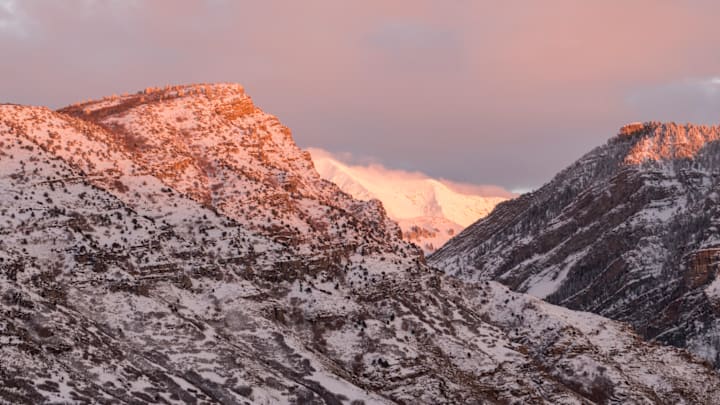Hundreds of geographic features across the U.S. are getting a long overdue update. As The New York Times reports, the United States Department of the Interior (DOI)is going ahead with plans to rebrand 660 landmarks that currently include a slur in their name.
Squaw, a racist and misogynist word for Indigenous women, was labeled a derogatory term by the DOI in November 2021. After moving to replace the word in all official communications, the department is now moving forward with an initiative to remove it from the names of mountains, rivers, lakes, islands, and other sites managed by the federal government.
U.S. Secretary of the Interior Deb Haaland, the country's first Native American cabinet secretary, organized a task force to survey the properties and put forth new name suggestions. The group consists of members from the National Park Service, the Bureau of Indian Affairs, and other government agencies. After coming up with a list of at least five alternative names per site, the DOI is now asking local Native American tribes for feedback. The public is also invited to submit comments on the proposals by mail [PDF] or online through April 25.
To come up with the new name possibilities, the task force first looked at other geographic features in the area. The first candidate for renaming Squaw Creek in Washington, for example, is Olympic Mountains after the Olympic Valley. The first suggested alternative for a different Squaw Creek near the Pawnee Springs Ranch in Nebraska is the Pawnee Springs Ranch Reservoir [PDF].
“Words matter, particularly in our work to make our nation’s public lands and waters accessible and welcoming to people of all backgrounds,” Secretary Haaland said in a DOI press release. “Throughout this process, broad engagement with Tribes, stakeholders and the general public will help us advance our goals of equity and inclusion.”
The slur being targeted by the DOI is one example of an outdated term whose ugly meaning has been forgotten by parts of the population. Place names aren't the only examples of such language appearing in everyday contexts. Many of the common phrases we use in normal conversation have been divorced from their racist origins.
[h/t The New York Times]
